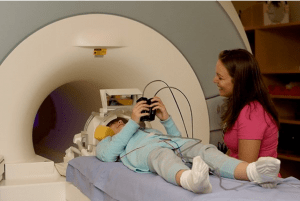How can colleges best help students with learning disabilities?
February 27, 2020

|
The need for support for learning disabilities doesn't just stop because a student has graduated from high school. In fact, roughly 60% of students with specific learning disabilities (SLD) go on to college but only 34% graduate. And while interventions for school-aged children with SLDs is well-documented, research of college-aged students is sparse.
Seeing the need for more research at the college level, a recent study asks a very important question. Could college students with two common SLD subtypes, Developmental Language Disorder (DLD) and Developmental Dyslexia (DD)-both of which are associated with a heightened risk of academic failure-benefit from targeted academic accommodations?
Academic accommodations are designed to remove barriers for students with special needs and can take many forms across colleges-like extra time on tests, tutoring, access to technology during exams, and more. But instead of offering up a general menu of accomodations, this study indicates that students with DLD and DD could benefit from customized accommodations that address the specific challenges they face as a result of their learning disability.
The study recommends the following targeted accommodations:
- For college students with DD providing note-takers is identified as a suitable personalized accommodation.
- Offering audio or video-recorded lectures and untimed tests are identified as critical accommodations for college students with DLD.
The lead researcher is Dr. Stephanie N. Del Tufo, who is an assistant professor specializing in literacy education in the School of Education at the University of Delaware. Her research is focused on understanding the neurocognitive basis of individual differences in learning, language, and literacy. You can learn more about her work on the DANE lab website.







